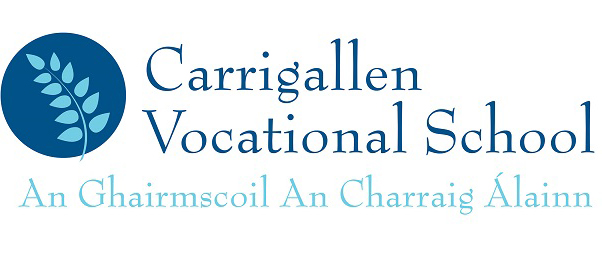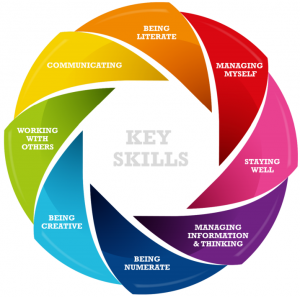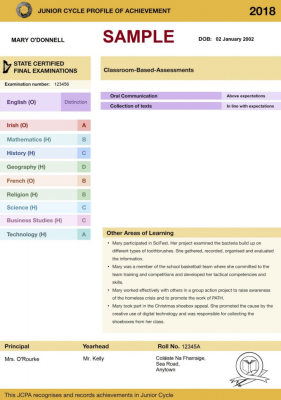Information on New Junior Cycle
for 1st, 2nd, 3rd Year Parents / Guardians / Students of Carrigallen Vocational School 2019—2020
The New Junior Cycle in Carrigallen Vocational school
The new Junior Cycle subject specifications and methods of assessment have been running in Carrigallen Vocational School since their introduction in 2014.
Carrigallen Vocational School offers the Junior Cycle at both Levels 1 and 2. Specific information on Level 2 is available separately from the school.
The roll out of subjects began with English on its own in 2014 and finishes this year with the technology subjects and Religion coming on stream.
Effectively that means that current 2nd and 3rd Year students are doing subjects under both the old Junior Cert curricula AND the new Junior Cycle specifications and assessment.
| Year Group 2019/2020 |
Subjects that will be assessed under new Junior cycle | Subjects that will be assessed under old Junior cert |
|---|---|---|
| 3rd Years | English, Business Studies, Science, French, Art, Irish | All other subjects |
| 2nd Years | English, Business Studies, Science, French, Art, Irish, History, Geography, Home Economics, Maths, Music |
All other subjects |
| 1st Years | ALL SUBJECTS | NONE |
Useful Terminology for Parents / Guardians of Junior Cycle Students
Classroom Based Assesments
The biggest difference between the old course and the new Junior Cycle is the introduction of a continuous assessment element. Students will complete Classroom Based Assessments (CBA) in every subject, one during 2nd Year and (with the exception of Gaeilge in this academic year) one during 3rd Year. The guidelines and instructions for these are universal for all schools. They are corrected by class teachers in conjunction with colleagues in the subject departments (at a SLAR meeting).
CBAs vary between subjects but can range from portfolios of work to oral or practical presentations. The results of these CBAs will appear on the student’s Junior Cycle of Achievement certificate.
Assessment Tasks
In the academic subjects, the assessment task represents 10% of the final state examination paper but it is done in advance of the state exams that are held in June of 3rd Year. It is a short exam, done during class time. The papers are set and corrected by the State Examinations Committee. It is completed after CBA 2 in 3rd Year.
Short Courses
The new Junior Cycle allows for the delivery of subjects in two ways—either as a full subject or as a short course. A short course is 100 hours long and will be assessed by teachers with the results appearing on the Junior Cycle Profile of Achievement. Many short courses have been developed fully for school use by the National Council for Curriculum and Assessment e.g. Coding, Digital Media Literacy etc… A school may or may not decide to deliver subjects as short courses.
| Level | Junior Certificate | Junior Cycle | ||
|---|---|---|---|---|
| Percentage | Grade Descriptor | Percentage | Grade Descriptor | |
| Higher, Ordinary, Foundation / Ard, Gnath, Bonn | ≥ 85 to 100 | A | ≥ 90 to 100 | Distinction |
| ≥ 70 and < 85 | B | ≥ 75 and < 90 | Higher Merit | |
| ≥ 55 and < 70 | C | ≥ 55 and < 75 | Merit | |
| ≥ 40 and < 55 | D | ≥ 40 and < 55 | Achieved | |
| ≥ 25 and < 40 | E | ≥ 20 and < 40 | Partially Achieved | |
| ≥ 10 and < 25 | F | ≥ 0 and < 20 | Not Graded (NG) | |
| ≥ 0 and < 10 | NG | |||
table showing how the old Junior Certificate state exam grades compare to the new Junior Cycle grade descriptors
Information for 2nd Year Students 2019—2020
| Subject | Details of Assessment | Time Frame for Completion of Assessment |
|---|---|---|
| English | CBA1 – Oral Presentation | 3 weeks between 6th January and 15th May 2020 |
| Business Studies | CBA1 – Business in Action Project | 4 weeks between 6th January and 15th May 2020 |
| Science | CBA1 – Extended Experimental Investigation | 3 weeks between 6th January and 15th May 2020 |
| French | CBA1 – Oral Communication | 3 weeks between 6th January and 15th May 2020 |
| Art | CBA1 – From Process to Realisation | 14 weeks between 6th January and 15th May 2020 |
| History | CBA 1 – The Past in My Place Project | 3 weeks between 6th January and 15th May 2020 |
| Geography | CBA 1 – Geography in the News Report | 3 weeks between 6th January and 15th May 2020 |
| Home Economics | CBA 1- Creative Textiles | 8 weeks between 4th November 2019 and 15th May 2020 |
| Maths | CBA 1 – Mathematical Investigation | 3 weeks between 6th January and 15th May 2020 |
| Music | CBA 1 – Composition Portfolio | Up to 15th May 2020 |
Information for 3rd Year Students 2019—2020
| Subject | Details of Assessment | Time Frame for Completion of Assessment |
|---|---|---|
| English | CBA2 – Portfolio of Written Texts | 3 weeks between 6th Dec. 2019 - Friday 13th March 2020 |
| Business Studies | CBA2 - Presentation | 3 weeks between Mon. 18th Nov. 2019 - Friday 13th March 2020 |
| Science | CBA2 – Science in Society Investigation | 3 weeks between Mon. 18th Nov. 2019 - Friday 13th March 2020 |
| French | CBA 2 - The Student Language Portfolio | 6th Dec. 2019 - Friday 13th March 2020 |
| Art | CBA 2 - Communicate and Reflect | 3 months - 9th September - 29th November |
| Gaeilge | CBA 1 – Language Portfolio | up to 22nd November 2019 |
| Gaeilge | CBA 2 – Communicative Task | 3 weeks between 6th Jan. 2020 - Friday 13th March 2020 |
Assessment Tasks
The Assessment Task is a short paper that is worth 10% of the final state examination. The AT is completed in the ASSESSMENT TASKS school under strict exam conditions around the time that students complete CBA2. This means that the AT is completed by 3rd Year students only. It can be completed in 1 or 2 classes. This date or dates will be communicated later in the year.
Wellbeing
Wellbeing is an area of learning in-built into the new Junior Cycle that came into effect in the 2017/18 academic year. It consists of subject areas that are already taught in schools including CSPE, SPHE and PE, in addition to a new time allocation for non-academic other learning experiences with a view to enhancing the general Wellbeing of the students.
Schools are free to draw up their own programme for Wellbeing but sample areas might include:
- Induction Programme for 1st Years
- Guidance Programme for JC students
- Programme on Staying Safe Online
- Yoga, meditation, mindfulness programmes
- Extra Curricular Events e.g. Concerts, exhibitions etc…
As part of Wellbeing, the school has introduced an extended weekly assembly during which students will have longer contact time with their Class Tutors and Year Heads to review and discuss:
- Diary signatures
- Conflict resolution
- School Policies
- Student Wellbeing Issues etc…
- Year Group planning for group activities
| Year | CSPE | SPHE | PE | Other | Total |
|---|---|---|---|---|---|
| 2017 | 1 | 1 | 2 | 1 | 5 |
| 2018 | 1 | 1 | 2 | 1 | 5 |
| 2019 | 1 | 1 | 2 | 1 | 5 |
| From 2020 | 1 | 1 | 2 | 2 | 6 |
The Junior Cycle Profile of Achievement
When students receive the results of their Junior Cycle State Exams in the September following the completion of these exams (in TY or 5th Year depending on their choice), this does not represent the full extent of the certification of their Junior Cycle participation.
Later in that year, the students will receive their Junior Cycle Profile of Achievement. As well as containing their State Examination results in each subject, the results of their Classroom Based Assessments will also be on this certificate as well as details of activities that the student engaged in outside of the academic classroom that fulfilled the areas of learning set down in the Junior Cycle statements of learning / key skills.
This presents a more rounded assessment of the achievements and skills of that student, rather than just the results of a final, state exam. This represents the biggest significanct difference between the old Junior Cert and the new Junior Cycle.
- Department of Education Circular 0079/2018
- www.jct.ie (Junior Cycle Training Website)
- www.ncca.ie
- www.juniorcycle.ie
- www.curriculumonline.ie
- www.schooldays.ie (School Calendar for this and next year)
- CONTACT THE SCHOOL WITH ANY QUERIES: [email protected]






